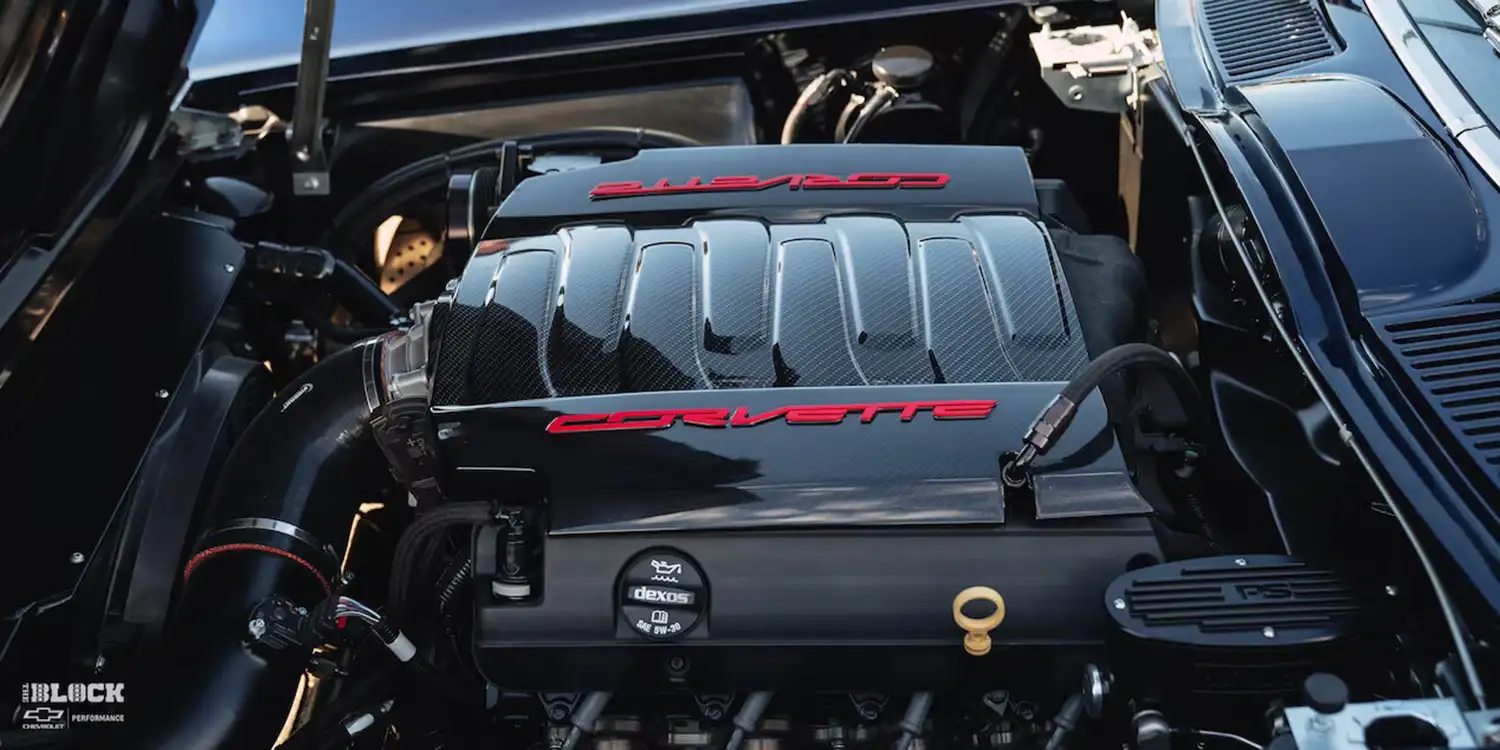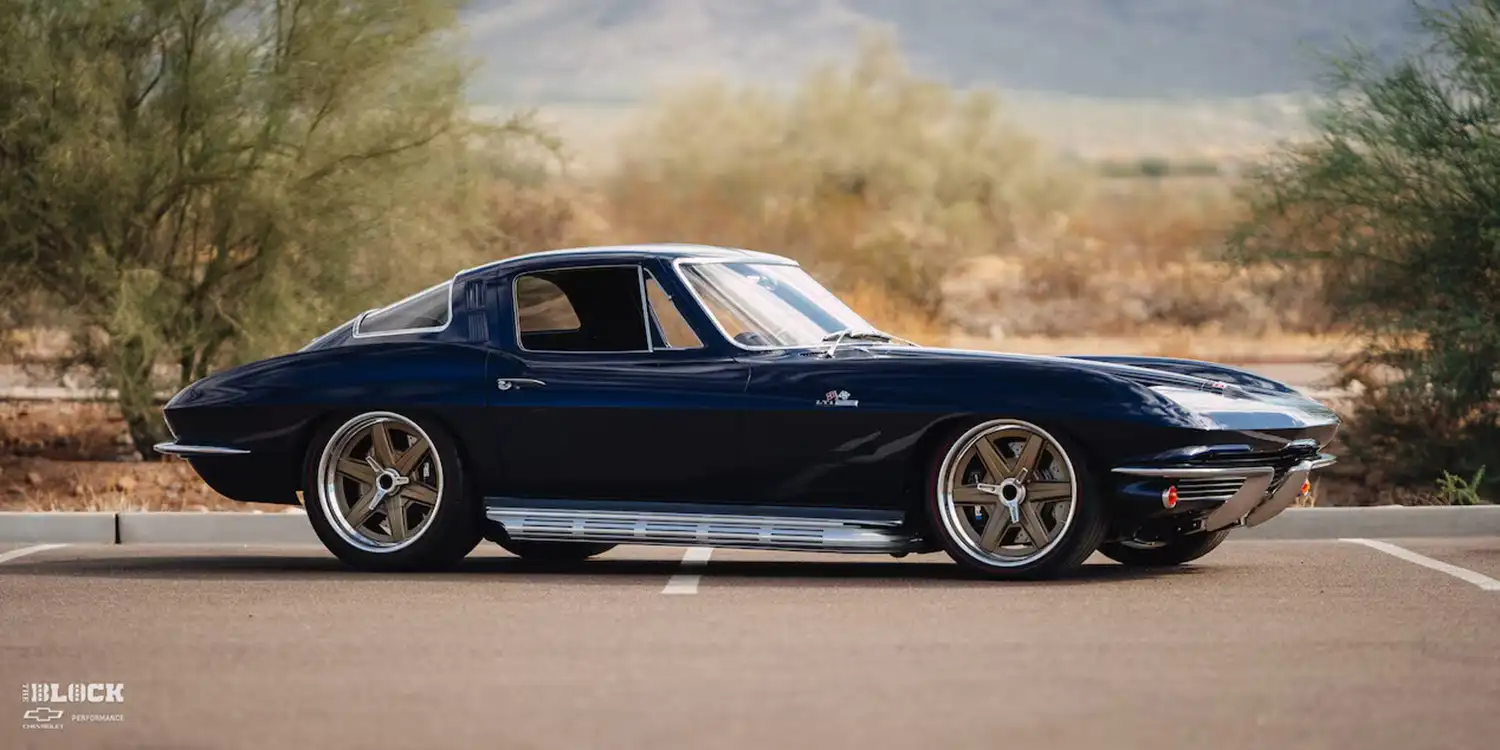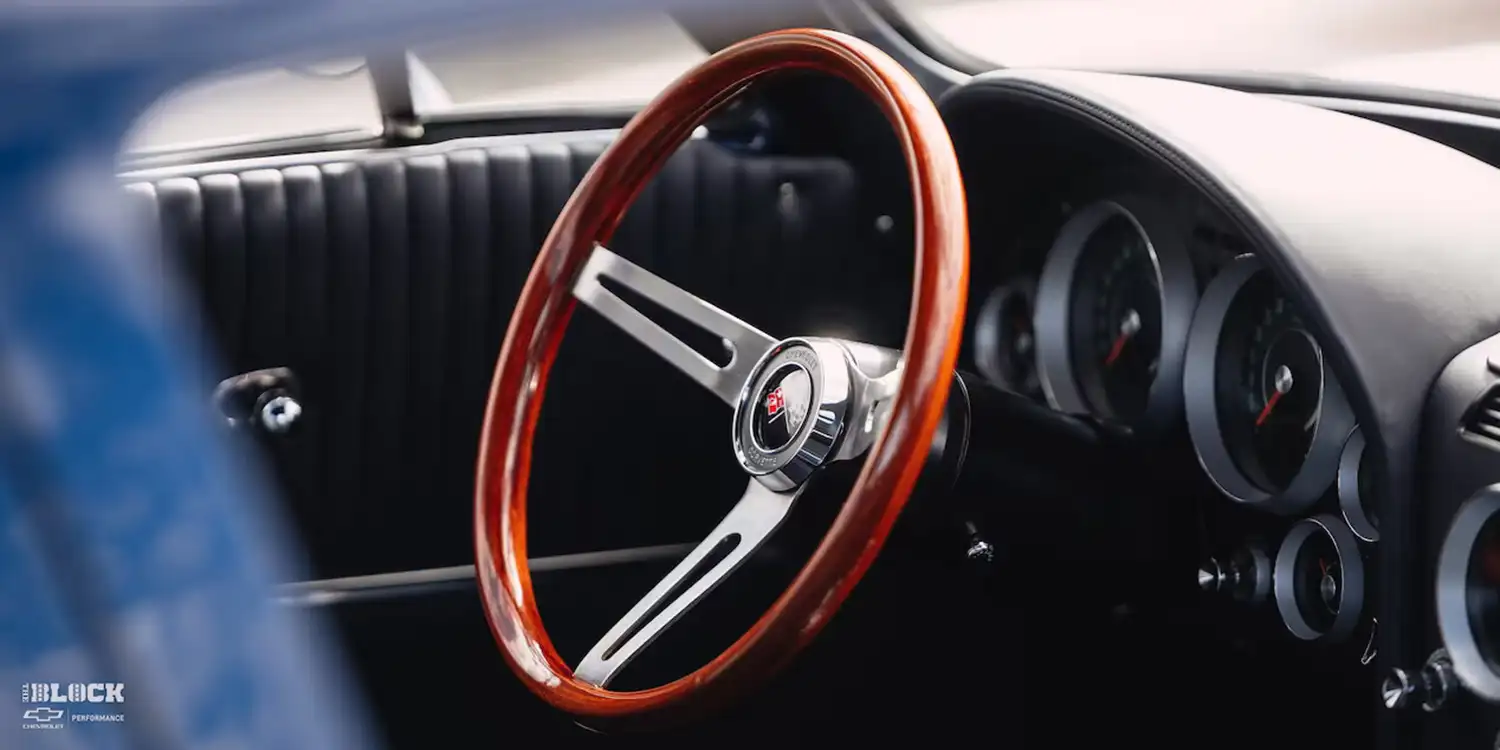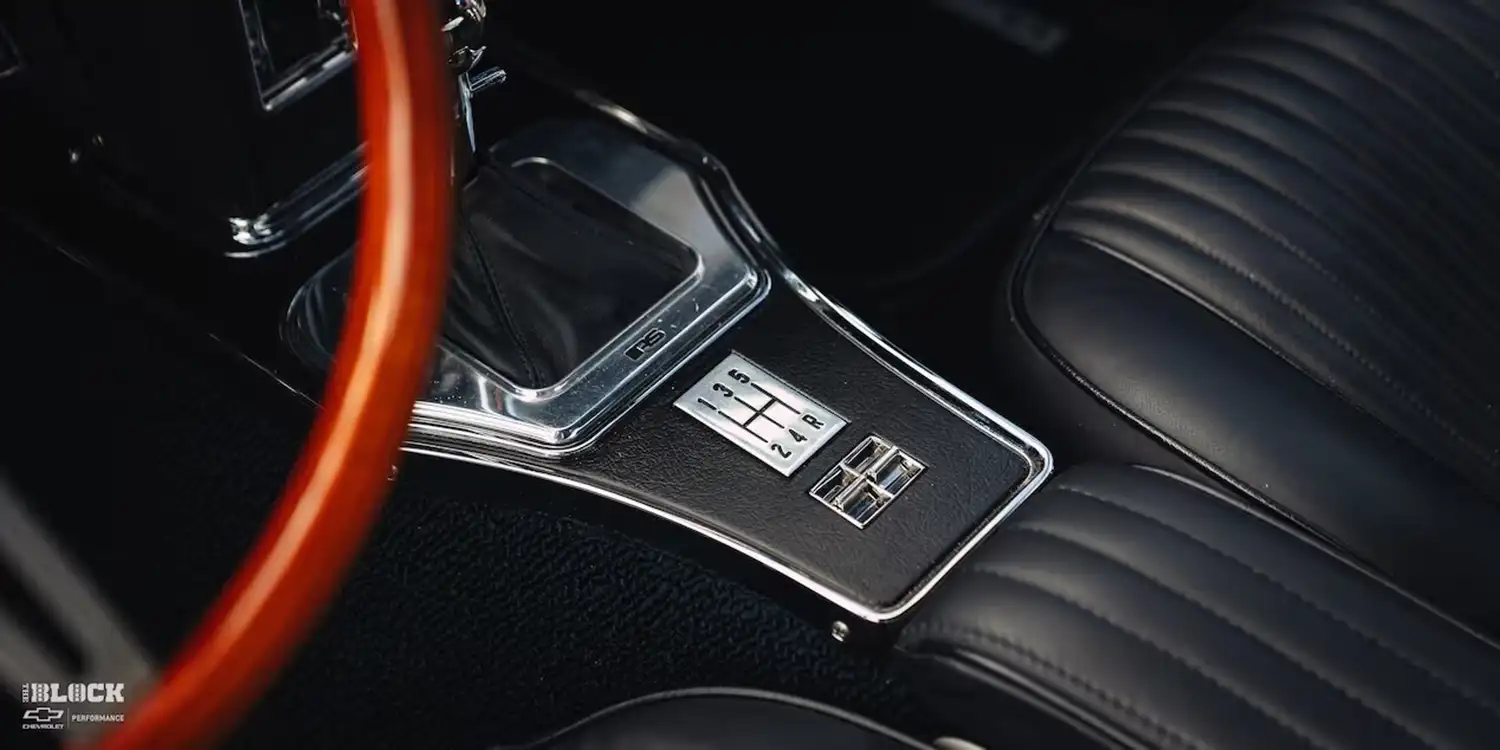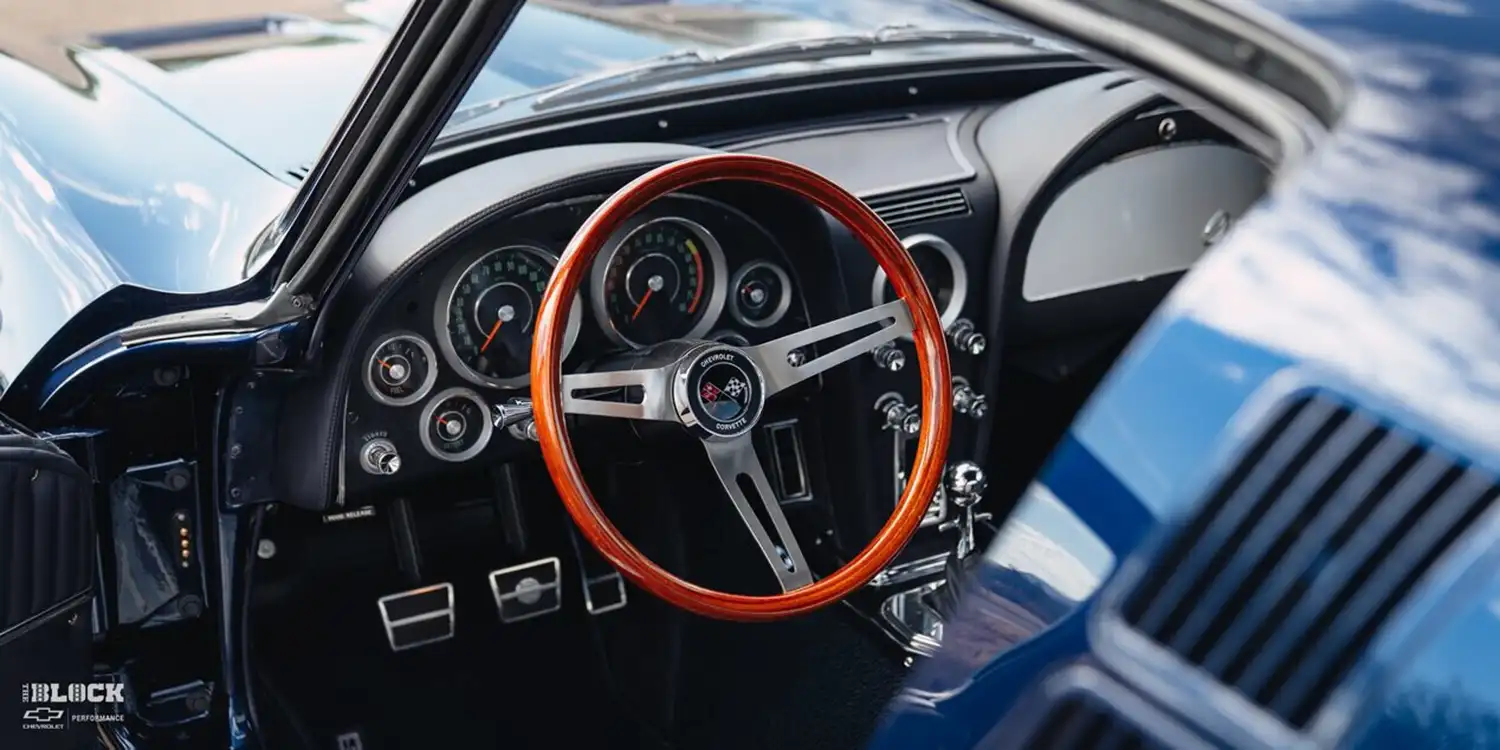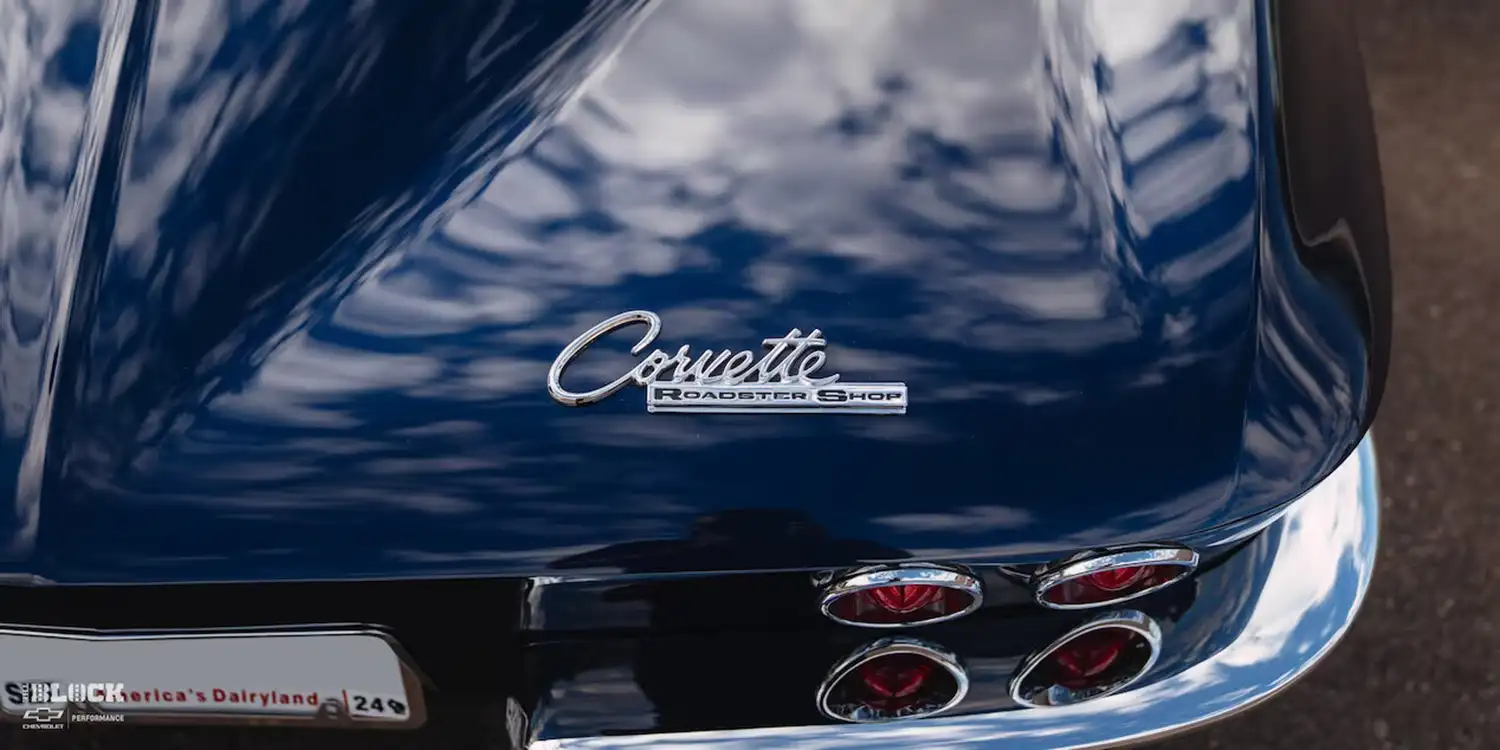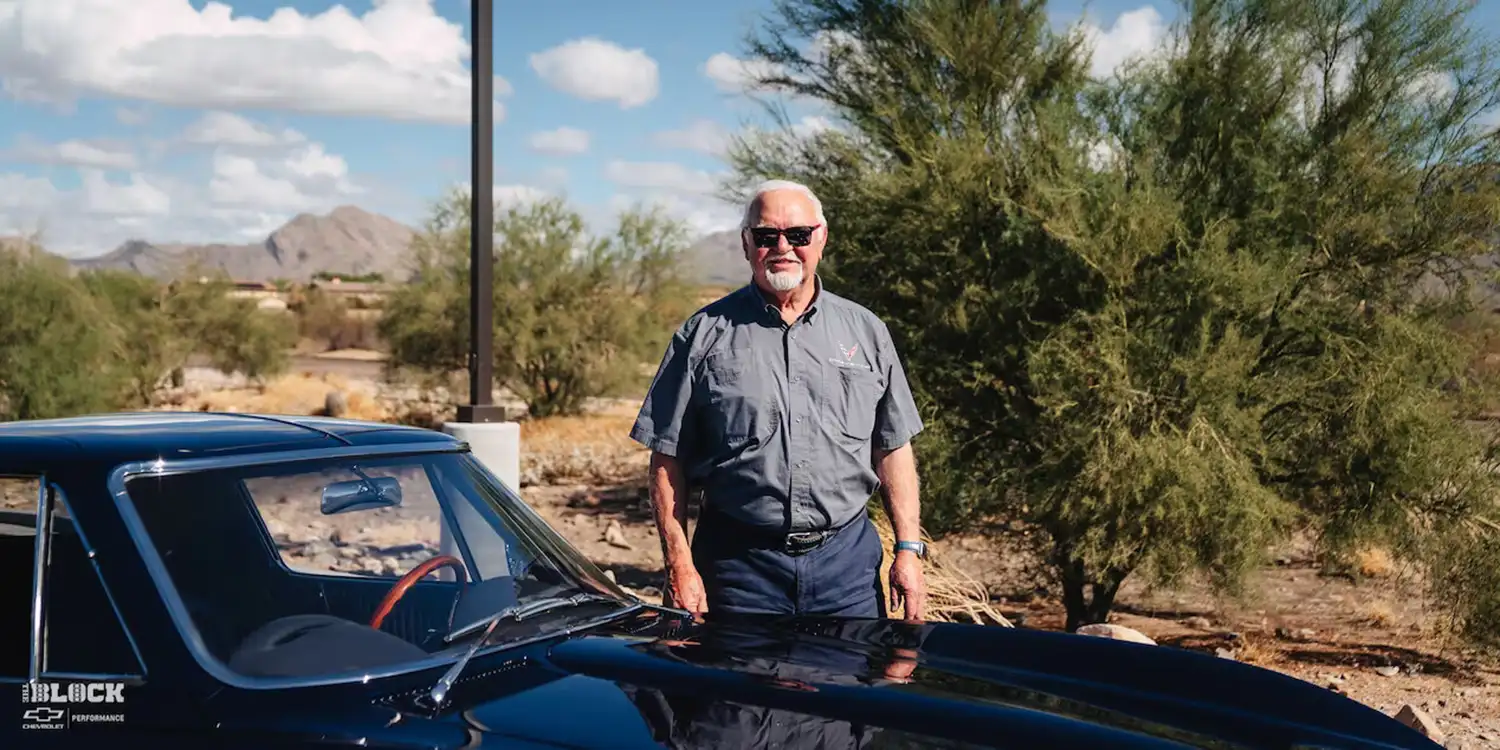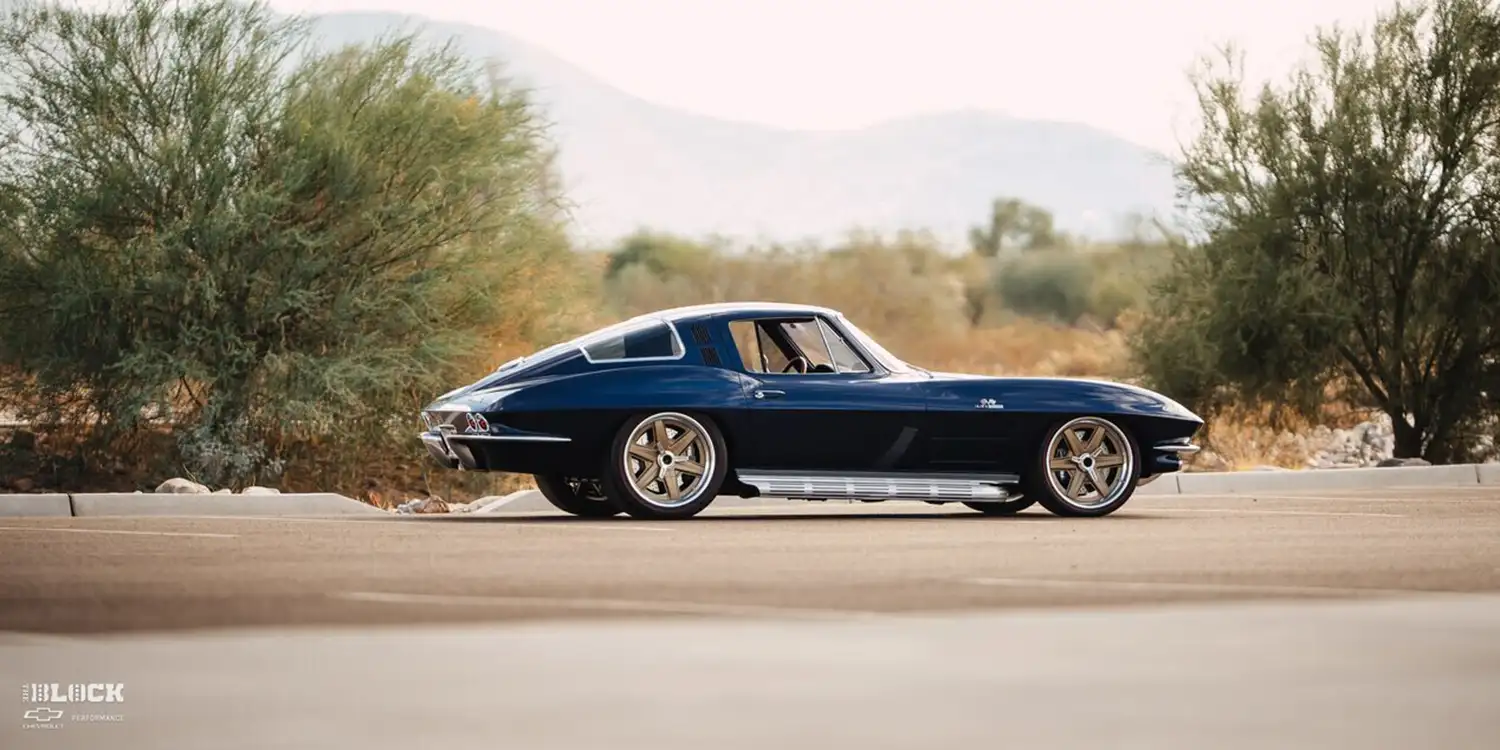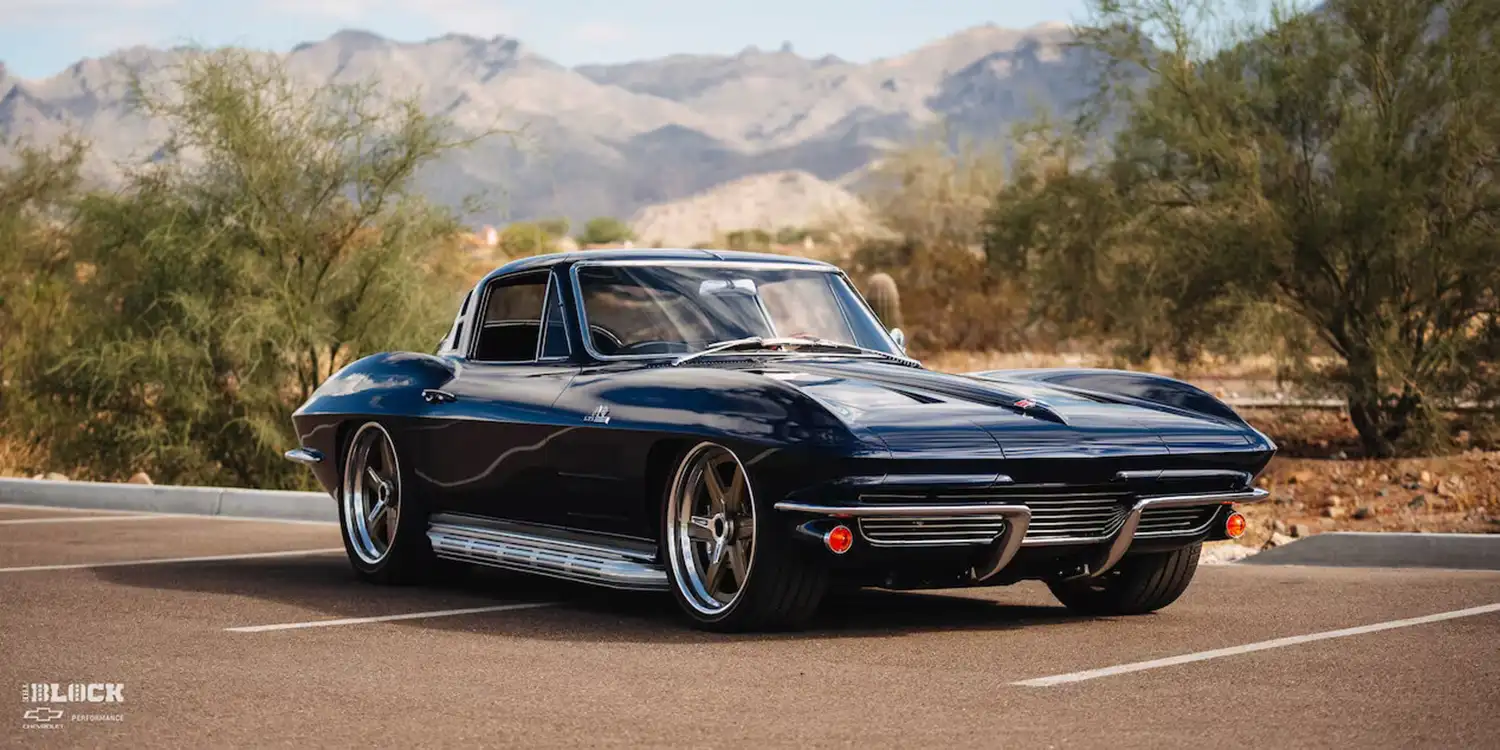
ٍSource: Chevrolet.com
WORDS: DAN HODGDON
PHOTOS: LUCAS PRIAMO and NATE LIGHT
Barry Blomquist thought he had made the right decision when he sold his LT1-powered 1964 Corvette at the Barrett-Jackson Collector Car Auction in the winter of 2017. But two days later, he wanted it back.
As fate would have it, Blomquist reacquired the car in the spring of 2022, and it is now a cornerstone of his impressive vehicle collection.
The car originally belonged to a retired professor in La Crosse, Wisconsin, who had owned the Sting Ray for 50 years and a month when Blomquist bought it in May of 2014. Although the car was numbers-matching, it had 194,000 miles and the original 327 cu.-in., 340-horsepower engine had been rebuilt three times. Blomquist also later discovered the frame had been replaced with a 1965 model due to the harsh Wisconsin winters.
Being a self-proclaimed “restomod guy,” Blomquist decided the car was worth a modern build. He sent it to the Roadster Shop and after a year, the Corvette came back as a show-quality vehicle.
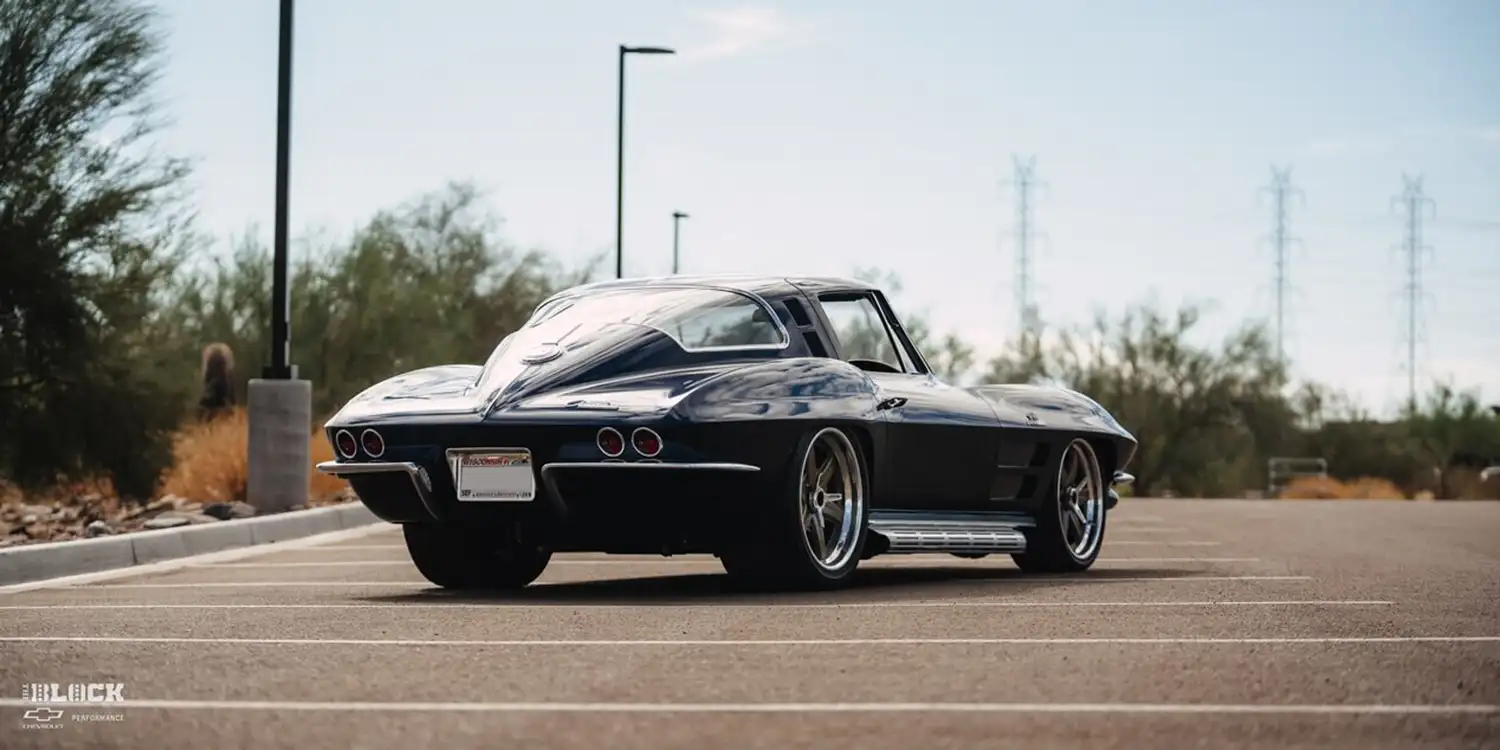
For much of his life, Blomquist owned a welding and fabricating shop that at one time employed nearly 90 people. Now, he splits time between La Crosse and Scottsdale, Arizona. In mid-November, he showed the LT1-powered Corvette during the season-ending Goodguys Speedway Motors Southwest Nationals at WestWorld of Scottsdale.
Blomquist chose the Chevrolet Performance LT1 crate engine* because it was some of the newest technology at the time his 1964 Corvette was built. Plus, he has an affinity for being on the leading edge.
“I heard a rumor that this was actually one of the first [LT1] crate engines GM shipped out for aftermarket use,” Blomquist said during the Scottsdale show. “It was very early on.
“It’s just a very nice driving, civilized car. No wild cam, no rough idle. It’s just a really nice package.”
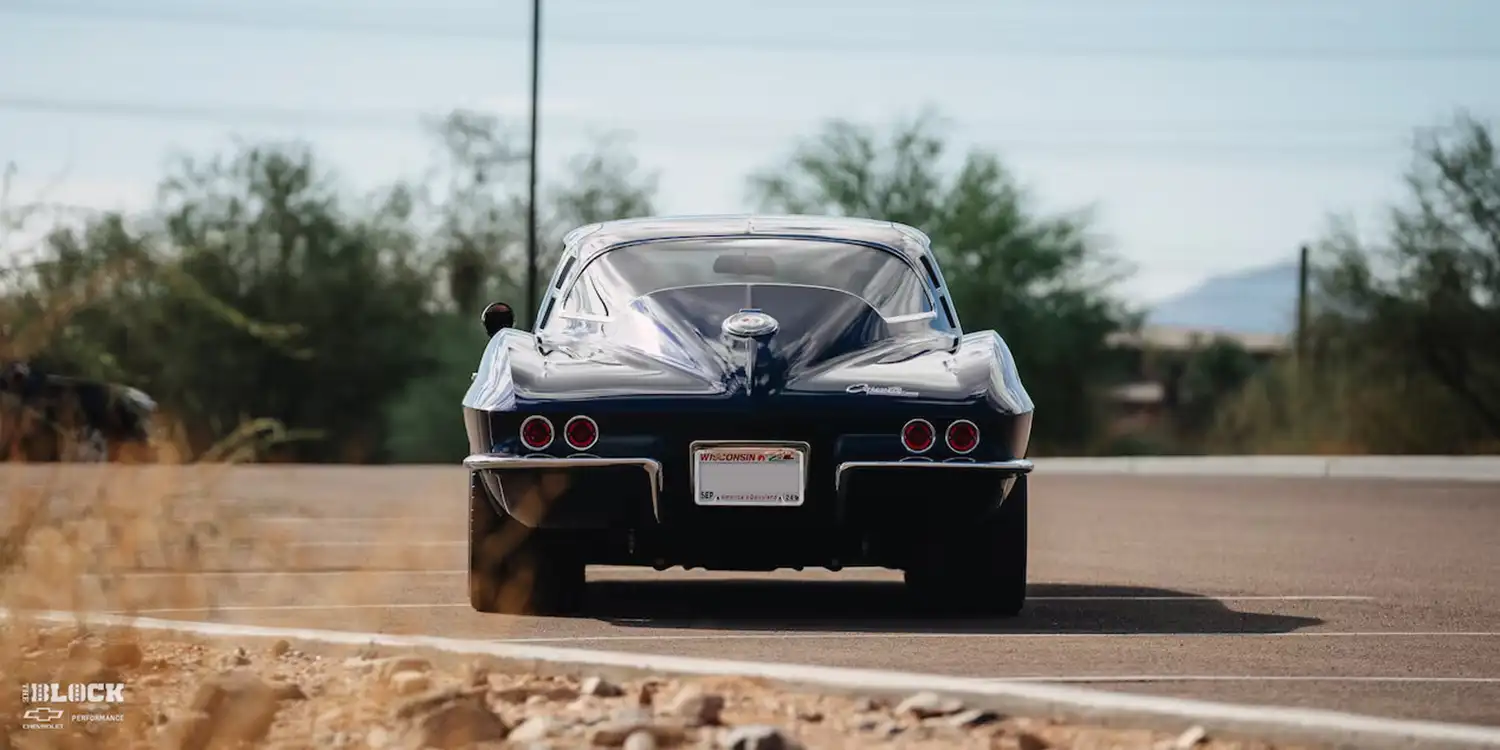
The LT1 is factory-rated at 460 horsepower and 465 lb.-ft. of torque. The 6.2L engine was introduced on the seventh-generation Corvette Stingray in 2014 and represented the first Gen V Small-Block engine in Chevrolet’s storied history. Among its modern features are direct injection and continuously variable valve timing. The LT1 in Blomquist’s Corvette is mated to a TREMEC TKX transmission.
“This was an engine that came out in the Corvette that year [when the car was built in 2014] and it seemed like it should be in a Corvette,” Blomquist said of the LT1 choice for his 1964 model.
Blomquist is familiar with both LT power and Chevrolet Performance’s crate engine* options. He has owned six C7 Corvettes and four C8 versions of America’s Sports Car. He calls the current-generation Z06 model the best car he’s ever owned.
In addition, he’s built multiple cars with the Bowtie’s LS3 crate engine* including a 1960 El Camino. In recent years his collection has also featured a 1963 Impala (an example of his first car). A 700-horsepower 1965 Pontiac 2+2 similar to one he bought in his late teens is another of his prized possessions. That car once won the Triple Gun Award of Excellence during the Grand National Roadster Show.
Blomquist has owned some other sports cars but has long been a fan of General Motors and the Bowtie.
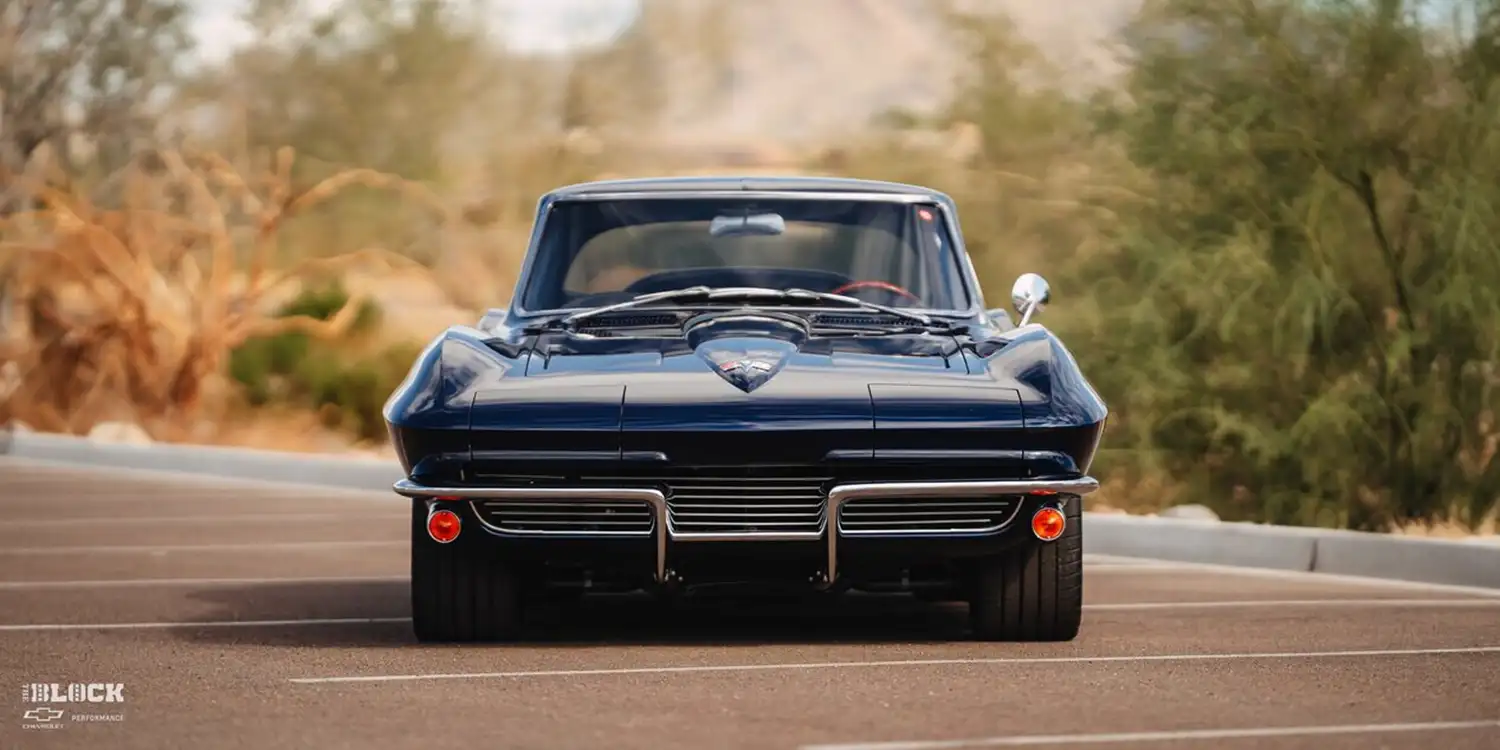
“I’m a diehard Chevrolet guy, no doubt about that,” he said.
His 1964 Corvette is an award winner as well, having claimed a prestigious Chevy SEMA Design Award during the 2015 edition of the SEMA Show.
It’s easy to see why.
The car sits on a Roadster Shop chassis built for the popular C2 (or mid-year) Corvette models. Roadster Shop is well known for offering chassis options featuring everything from engine mounts to suspension components. The result is the seamless installation of a new powertrain and modern driving characteristics.
Blomquist’s chassis counts as highlights independent rear suspension, a Ford nine-inch rear end, and slotted and drilled 14-inch Baer Extreme brakes all the way around.
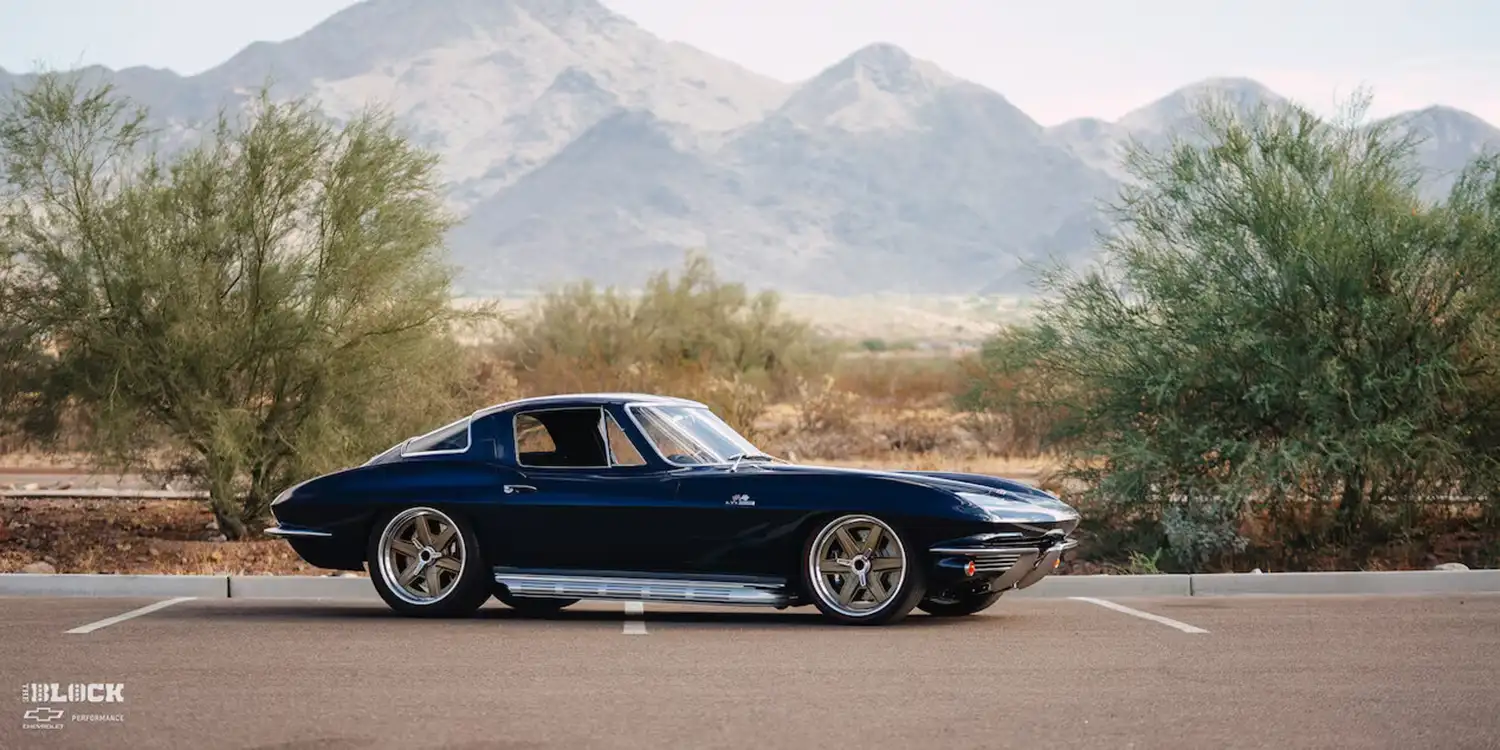
However, Blomquist and the Roadster Shop team also did some customization. They brought in the frame rails an inch and a half on each side to pull in the spindles and create more negative offset on the wheels. They did so while maintaining a decent turning radius. As a result, custom headers were a necessity, but the car has a mean-looking stance.
The Corvette was originally painted in Daytona Blue, a color which Blomquist at first planned to repaint the Corvette. But Roadster Shop’s painter suggested an upgrade from the 50-year-old formula and today the Corvette is painted in a head-turning modern blue shade found on Toyota vehicles.
The paint is complemented by gold Forgeline RS6 centerlock wheels, specifically built for Blomquist’s Corvette. They were inspired by the wheels on the CERV One concept Corvette driven by Zora Arkus-Duntov in the early 1960s. The retro-style six-spoke wheels feature a shallow concave profile and stepped-lip outer. Today, they are available for sale from Forgeline. The wheels also appear on Blomquist’s El Camino and were on his Impala restomod.
“They’re kind of my trademark,” he said.
Michelin Pilot Sport tires wrap around the wheels. The rubber measures 335/30-20 in the rear and 295/30-19 up front.
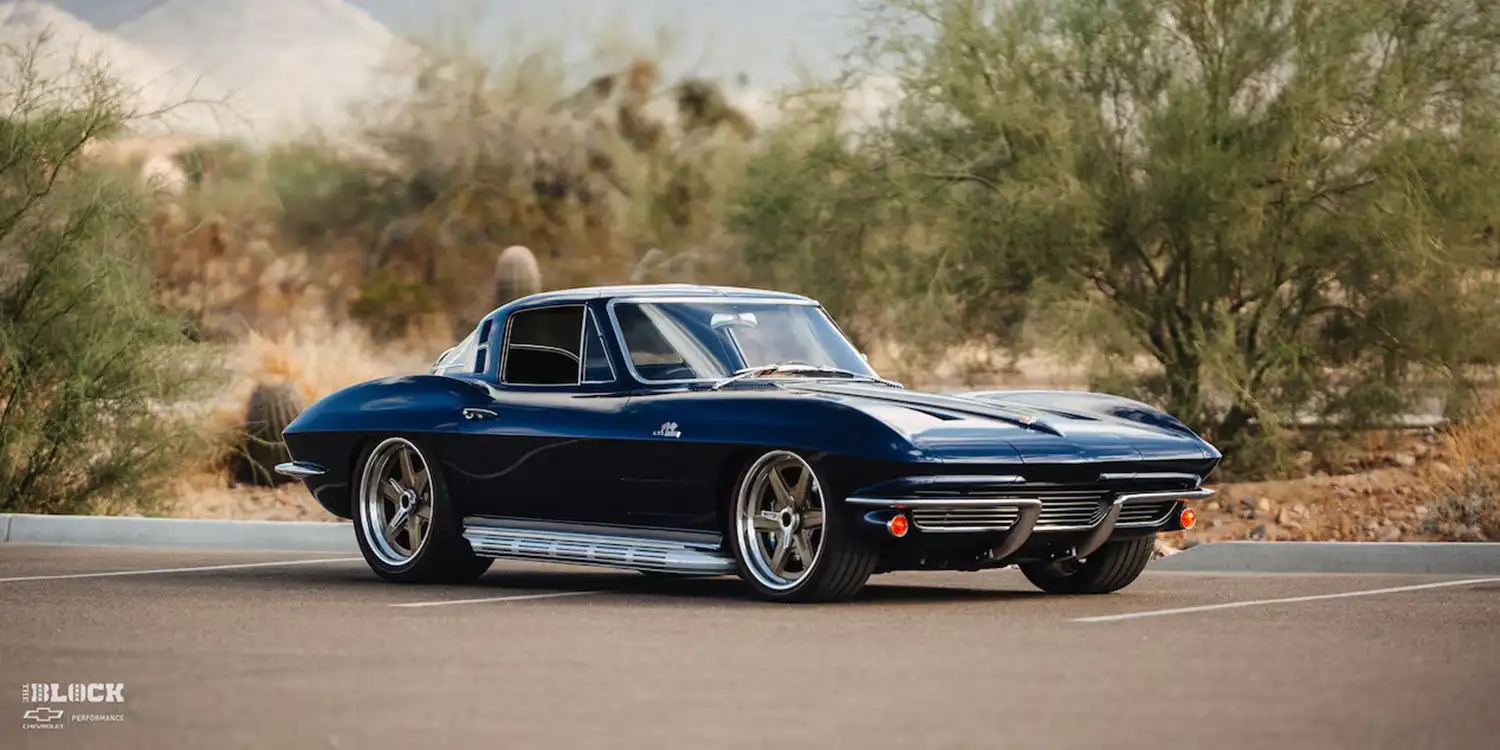
The fit and finish of the Corvette is impressive as well, with perfect door and headlight gaps. The body is not altered or flared and has never been damaged. All the glass has been replaced and Advanced Plating was responsible for all the chrome elements. The bumpers have been tucked in and now sit just 3/16 of an inch from the body, while custom-machined “LT1” badges on the front fenders mimic the era’s original emblems.
Under the hood, Roadster Shop hid the ECU and wiring, creating a clean engine bay highlighting the LT1 crate power plant. The Roadster Shop team had to custom-machine a mount for the air conditioning compressor because the Corvette was such an early LT1 build that there wasn’t one available at the time. Otherwise, the whole front drive is totally stock.
Famed Al Knoch Corvette Interiors was responsible for the interior of the car. They covered the seats, door panels, headliner, dash and even the sun visor in leather. However, they did so in the exact same style of stitching as would have been done in 1964. In addition, Dakota Digital gauges integrate with the modern computer system.
“I really wanted to keep the car looking original,” Blomquist said.
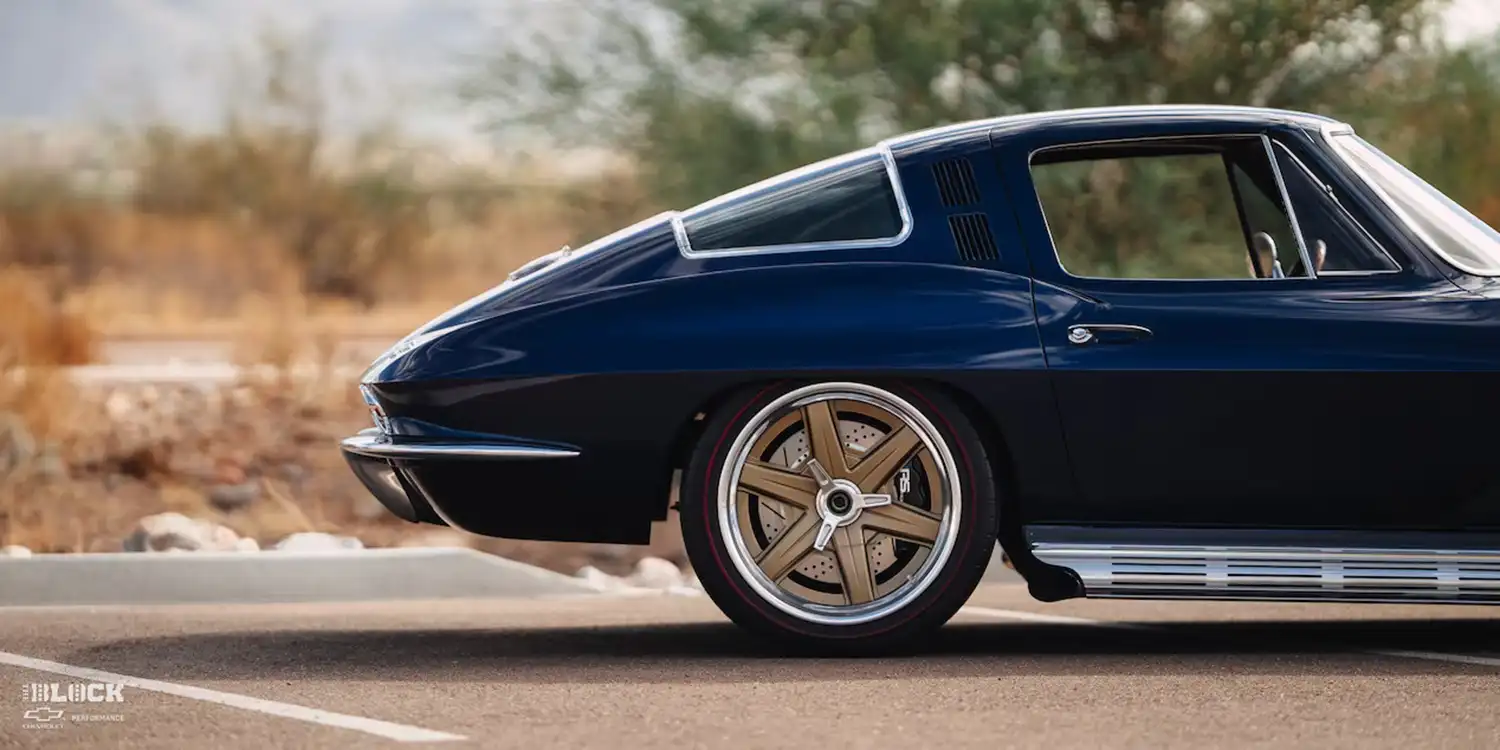
That extends to the car’s overall appearance, which Blomquist fittingly refers to as “timeless.”
“It’s amazing to me that this car has stood the test of time,” Blomquist said. “In another year the build will be 10 years old, and every place I take it, people just like it. It’s clean; not overdone, not underdone.”
Blomquist’s love affair with cars began when he was 8 years old, and by the time he was 16 he was rebuilding vehicles to make money, with his father (a used car dealer) selling them. Yet as Blomquist’s business grew, and life got in the way, the automotive hobby went on the back burner.
When he turned 60, he decided to reignite his passion and Roadster Shop delivered the first car they built for him, a 1932 hot rod, on his 60th birthday. He was Roadster Shop’s first paying customer in 2006 and since then has worked with the team on seven builds, with an eighth in progress. He has also grown very close to the Gerber family who own the company.
Across the majority of Blomquist’s vehicles, there is one common theme under the hood.
“I’m not into turbocharging, I’m not into supercharging, I just love normally aspirated engines,” Blomquist said.
That’s just one more reason why the Chevrolet Performance LT1 crate engine in his 1964 Corvette is a perfect fit.
